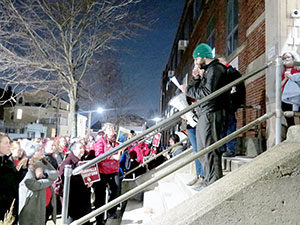
The rally in support of paraprofessionals gathered outside the Somerville Public Schools Central Office, while president of the STA Rami Bridge spoke, on February 24.
By Shira Laucharoen
Chanting vociferously and carrying signs, throngs of rallying individuals flooded the meeting room for the Somerville School Committee at 8 Bonair Street, on February 24. The community members were standing up for the rights of paraprofessionals who work in Somerville schools, asking for a new contract that would grant them fair pay and job security.
“While we are talking about respect for paraprofessionals, you are describing them as part time employees. The gap between us has never felt wider,” said Rami Bridge, president of the Somerville Teachers Association, speaking before the School Committee during public comment period. “Right here is an opportunity to prioritize investment in fair wages and to strategically invest in our schools.”
The rally in support of paraprofessionals began at the basketball court of the East Somerville Community School. Speakers testified to the importance of paraprofessionals in schools, stating that programs would not be able to run without them. The gathering of teachers, paraprofessionals, and union organizers marched through the streets of East Somerville before arriving at the School Committee meeting, where they lined up to speak in protest of unfair work conditions.
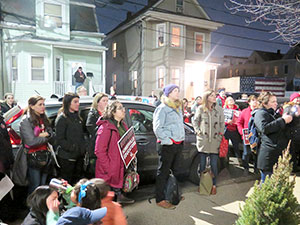
Teachers, paraprofessionals, and union organizers filled the streets, in support of a fair contract.
The Somerville Teachers Association (STA) and the School Committee have been in the process of negotiating for a new contract, as the last paraprofessional contract ended in August 2019. The STA is proposing a contract that will call for three main provisions, an increase in salary, permanent status after four years of work, and a two-year length for the contract. Currently, the starting salary of a paraprofessional is $20,680, which is not a living wage, said Bridge. Many paraprofessionals have to work a second or third job to supplement this income. The STA is asking to raise the minimum salary to $25,000. Paraprofessionals have little job security, as they must wait for a new letter hiring them back at the end of each school year. The new contract would guarantee their position, after working at the same job for four consecutive years. The STA is also asking for a two-year contract so that paraprofessionals will be able to negotiate at the same time as teachers.
The School Committee has responded to these demands by saying that the plan “costs too much,” said Bridge. When the School Committee did not receive a response to its counter proposal, as there was not enough time during the negotiating session “to meaningfully discuss it,” the School Committee filed for mediation, according to Bridge. The two parties do not engage in a face-to-face way, said STA vice president Megan Brady, a situation that is not ideal.
“When I look at this whole process, the School Committee routinely professes, both in writing and in public meetings, that they value the work of paraprofessionals, but that they just don’t have it in their budget to pay them a starting salary of $25,000. To me, your budget is your values,” said Brady. “To say there’s not the money, that it costs too much to pay the paraprofessionals, is also a reflection of who or what they value.”
During the rally, speakers attested to the impact paraprofessionals have in their communities. Erika Uyterhoeven, who is running for state representative serving Somerville, stated that teachers “are on the frontline for saving public education.” Councilor at large Will Mbah called the situation an issue of equity, noting that most individuals present at the rally were women and people of color. City council president Matt McLaughlin, who also sits on the School Committee, said that city money has been funneled into many projects that are not as important as the rights of paraprofessionals.
The role of paraprofessionals has changed throughout the years, said chair of the Contract Action Team Margaret Whittier-Ferguson. In the
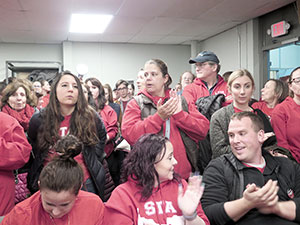
Rallying community members filled the School Committee meeting room, where speakers gave public comment.
classroom, paraprofessionals are responsible for everything from serving as translators for students who do not speak English as a first language to helping students with special needs. They work in tandem with teachers but are more than teaching assistants, said Bridge. While the teaching format may have been more “top down” in former years, today, the learning environment has changed. Children are more likely to be interacting with each other and engaging in small groups, said Bridge.
The process of pushing for a fair contract for paraprofessionals will continue, as the mediation schedule moves forward. The STA and the School Committee have one meeting planned for March and a pair of dates in May. Going forward, Bridge said that it is clear that the needs of paraprofessionals are not going to disappear.
“When we went to the School Committee last time, 100 people who were not in the union were there, speaking in support of the paraprofessionals, speaking to the value they bring to the schools, speaking to the important role they played in their children’s lives. I think that that is going to continue. I don’t think that that is going to go away,” said Bridge. “Our position is that educator working conditions are student learning conditions. Incentivizing paraprofessionals to go back to school and become more educated benefits students. Providing job security and a higher pay will keep more paraprofessionals in the district who are working with our students, as opposed to leaving.”
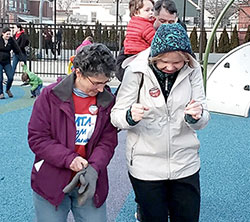
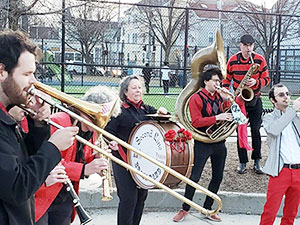
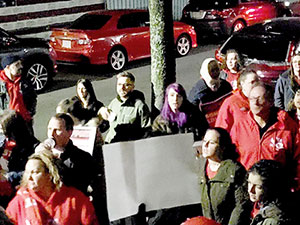
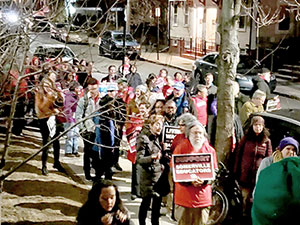
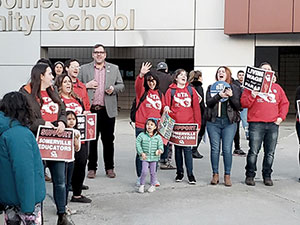
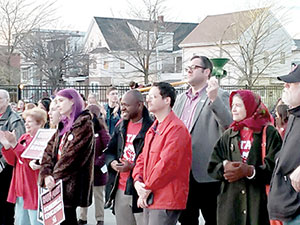
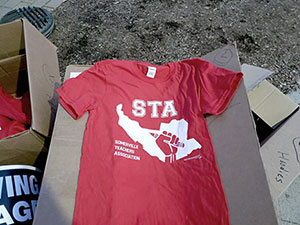















Reader Comments